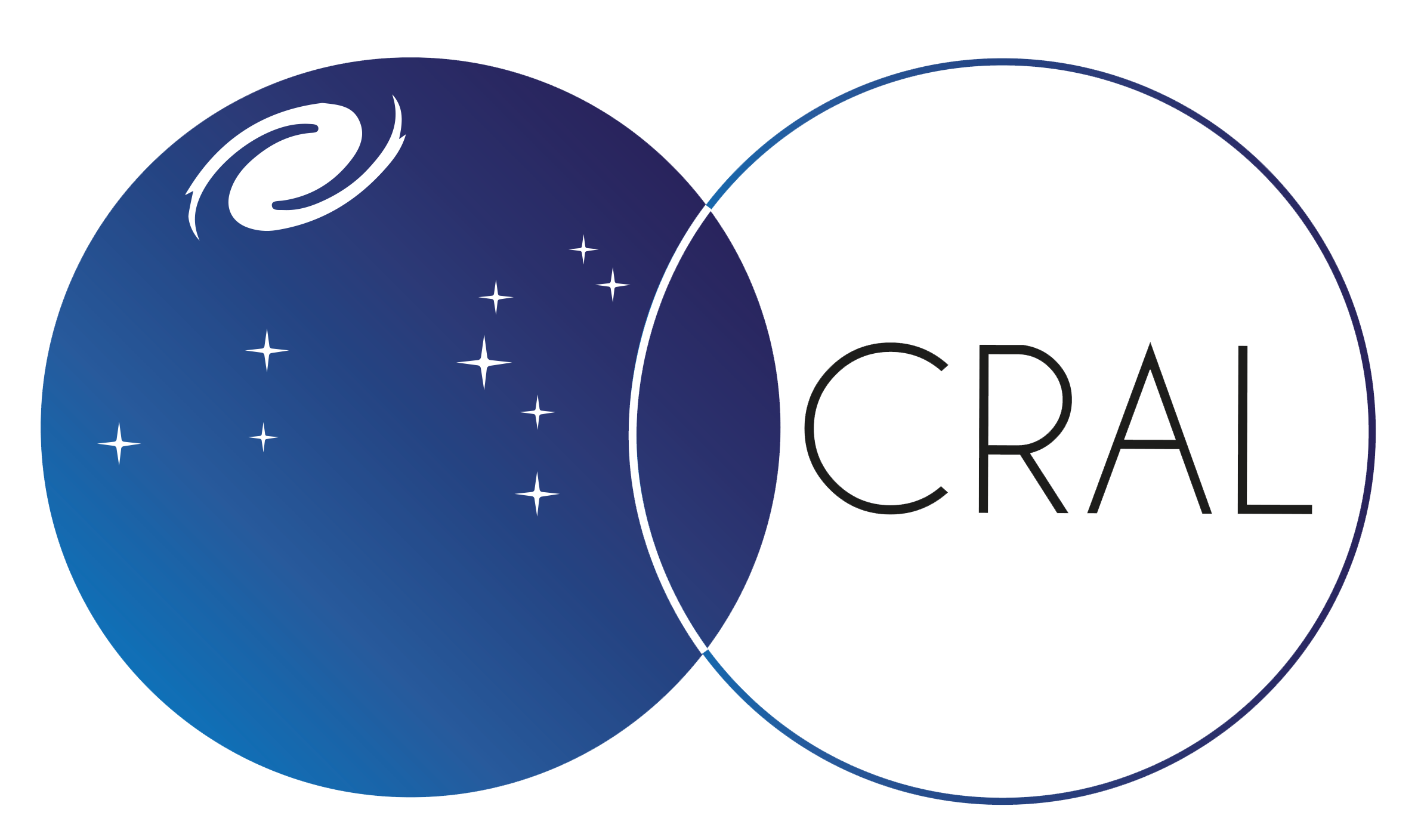Évènements
-
-

CRAL@Obs PhD Defense by Théo Santos (CRAL, LGL)
ObservatoireGenerative neural networks for parametrization in inverse methods: applications in astrophysics and geophysics In physical science, it is common to study the characteristics of an object that are not directly available but which certain effects within the physical system are observable. The observations can then be used to deduce the properties of the object of […]
-

CRAL@Obs seminar by Nicolas Dobigeon (IRIT)
ObservatoireMultiband image fusion under spectrally varying spatial blurs — Application to JWST data Multiband image fusion has been extensively studied in the literature of Earth observation. This task aims at recovering a multiband image of high spatial and high spectral resolutions from complementary measurements of lower spatial or spectral resolutions. While several methods developed in […]
-

CRAL@ENS internal seminar by Armand Leclerc
ENSNew tools from wave topology for asteroseismology Asteroseismology studies waves in stars and uses them to infer what their internal structure is. Today, hundreds of stars of every kind show oscillations which allowed us to deduce their mass, radius, rotation rate, width of convective zone, etc. Wave topology proposes a new light under which to […]
-
-

CRAL@Obs seminar by Nathan Hara (LAM)
ObservatoireDetecting Earth-analogs with radial velocities and photometry Abstract: Understanding how planets form and searching for life beyond Earth are two key goals in exoplanet research. To make progress on both fronts, it is crucial to discover Earth analogs. However, detecting them is a major challenge, as their faint signals are difficult to disentangle from astrophysical […]
-

CRAL@Obs seminar by Joe Lewis (IAP)
ObservatoireTBD
-

CRAL@Obs seminar by Valentina D’Odorico (INAF)
ObservatoireUnderstanding metal enrichment in the early Universe through quasar spectroscopy -- Chemical elements heavier than helium – commonly referred to as “metals” in astrophysics – are synthesized by stars and distributed in the surrounding medium through various feedback mechanisms. This process plays a pivotal role in the baryon cycle of galaxies and is crucial for understanding galaxy […]
-

CRAL@Obs seminar by Guillaume Bourdarot (MPE)
ObservatoireTBD
-
-

CRAL@Obs seminar by Nicolas Laporte (LAM)
ObservatoireTBD
-

CRAL@Obs seminar by Lucie Leboulleux (IPAG)
ObservatoireTBD
-

CRAL@Obs seminar by Michele Fumagalli (University of Milano Bicocca)
ObservatoireTBD
-
-

CRAL@Obs colloquium by Joop Schaye (Leiden)
ObservatoireTBD
-

CRAL@Obs seminar by Hannah Ubler (MPE)
ObservatoireObservational constraints on massive black holes in the first billion years One of the most surprising results coming out of the first years of science operations with JWST is the unexpectedly high abundance of actively accreting black holes in the early Universe. Compared to the local population, many of these early black holes appear to […]
